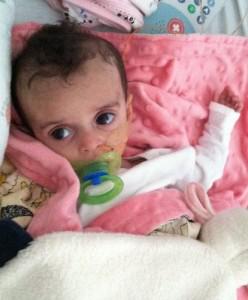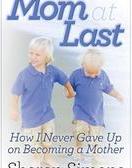Written by “Finding Magnolia”
Every day that we are at the hospital, we get a new medical surprise. Sometimes they are good, and sometimes they are not so good. While Elvie is definitely on the road to recovery, it will be a long road for her, and this part of the road doesn’t even include the big surgery and subsequent physical therapy for the diagnosis we knew about when we sought to adopt her. Elvie’s health was in jeopardy when we met her, and it had nothing to do with any of the diagnoses we included on our list when we did our home study and communicated our level of comfort with special needs to our agency. Just like in pregnancy, there are things you know beforehand, and there are risks for others that you may not find out about until the child is in your arms. We love Elvie and would have said yes to being her parents regardless, but it was good to know some of the potential common issues in international adoption before we set out, especially since so many of them are now part of our reality.

Health standards in various countries can differ widely, as can treatments. If you head into international adoption, I highly recommend consulting with an international adoption doctor both when you receive your referral and for an exam after you arrive home with your child. It was our international adoption doctor who advised us on keeping Elvie afloat healthwise while we were still in Ethiopia, and she was the one that examined Elvie and made the recommendation that we seek inpatient care, then made all the arrangements for us. The value of having a doctor who is well-versed in adoption issues and in what children in each country face is immeasurable. Not only will you know what to look for, but when you need exam and diagnosis, you know that you have an expert on your side.
I also recommend talking to other families who have adopted from the same country that you are intending to adopt from. When Zinashi arrived home and had the parasite giardia, it didn’t come as a big surprise to us, as we had spoken to many families who adopted from Ethiopia, and the majority of their children came home with giardia. The same was true of molluscum and lingering coughs brought on by the pollution in Addis Ababa. Having people around us that had experienced the common issues and had them treated effectively both gave us information on when to seek medical care and what it was like to go through treatment.
Once you know what the common issues are, you may be able to find families who are not adoptive families who have been through what you will go through. Particularly if you live in an area where there are not many other adoptive families, it can be helpful to make connections with families who are experiencing the same things you are, just with their biological children. A fellow mom of a child with physical special needs reached out to me after a chance meeting in the city, and she was able to help me navigate some medical decisions.
Continue Reading this Article on Health and International Adoption

